
In today’s digital world, where cyber threats are everywhere and online privacy is fragile, choosing the right VPN is essential. A virtual private network (VPN) encrypts your traffic, helping you browse anonymously, protect your data from hackers and surveillance, and access region-restricted content. Skip the confusing options and flashy ads — our expert guide reveals the top VPNs offering strong security, fast speeds, and smooth streaming.
This guide covers the best VPNs of 2026, and how to choose the best service for your needs while protecting your privacy and security online. We’ll also explain how choosing the best VPN service works to safeguard your information and unblock content across devices.
Ranking VPNs is a challenging process because different users have different needs. From our standpoint, a good VPN needs to at least meet all of the following ranking criteria to be recommended:
- Passed all tests with no leaks that would expose your data online (no DNS or IP address leaks).
- Good performance throughout the network (speed and reliability). VPNs with a larger number of servers and locations tend to provide better performance and speed.
- High-quality VPN apps with all features working correctly.
- Supports secure VPN protocols with strong encryption standards.
- Offers a money-back guarantee.
- Trustworthy and well-established VPN provider with a good track record. Consider the VPN company’s reputation, privacy policies, and commitment to security.
- Strong privacy guarantees with a no logs policy (and bonus points if it’s been audited).
Top VPNs for 2026
Based on the criteria above, here are the top VPN services for 2026:
- NordVPN — Best all-around VPN with secure apps for all major devices and very fast speeds (over 900 Mbps). Great for streaming plus extra security features (with a 77% off coupon).
- Surfshark — Best VPN for many devices (unlimited connections). Visit site >
- Proton VPN — User-friendly and private VPN in Switzerland. Visit site >
- ExpressVPN — Secure and reliable VPN service. Visit site >
- IPVanish — Fast, secure, and audited VPN with excellent support for streaming. Visit site >
- CyberGhost — Secure, fast, private VPN in Romania. Visit site >
- Mullvad — Privacy-focused VPN in Sweden. Visit site >
- Trust.Zone — Basic, affordable VPN service. Visit site >
1. NordVPN — Best all-around VPN service in 2026
| Website | NordVPN.com |
| Based in | Panama |
| Logs | No logs (audited) |
| Price | $2.99/mo. |
| Support | 24/7 live chat |
| Refund | 30 days |
| Deal | 77% Off Coupon |
Let's talk NordVPN. We’ve tested dozens of VPNs again this year, but NordVPN keeps coming out on top with its blistering speed and advanced (and ever-growing) set of features for security and privacy. Whether you’re a casual streamer or a privacy power user, NordVPN gives you the rare combo of dead-simple apps and genuinely advanced tools without forcing you to choose between speed and security.
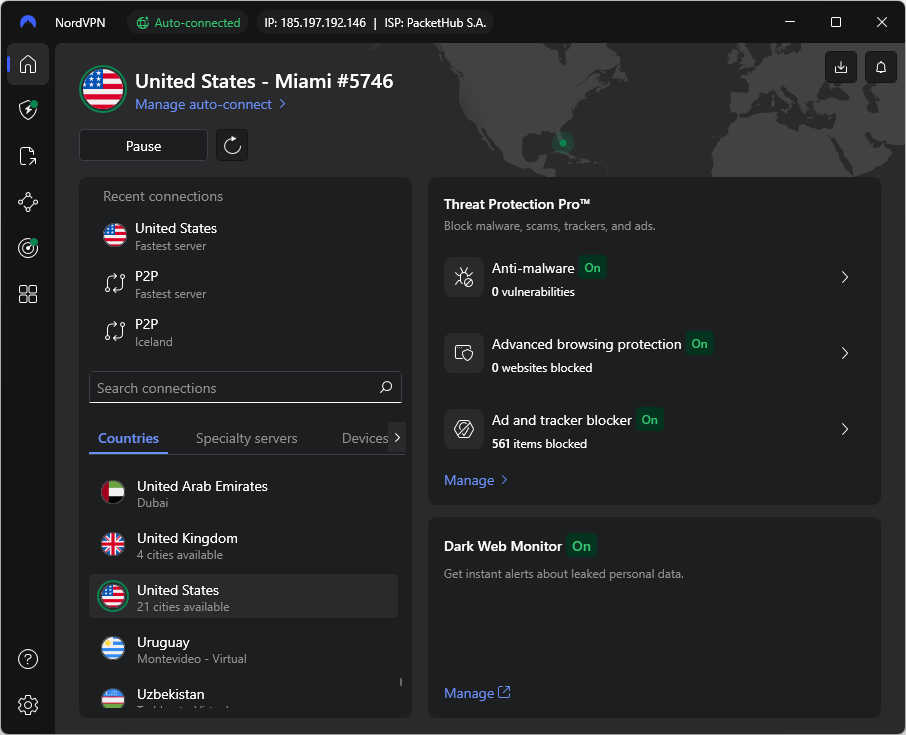
Powered by the NordLynx protocol (their refined take on WireGuard), we recorded a top download speed of 903 Mbps. This blows away both ExpressVPN and Surfshark in head-to-head tests. That speed is backed by a massive 8,700+ RAM-only servers in 174 locations (no hard drives means physically impossible to store logs), and Nord is rapidly swapping in self-owned 10 Gbps colocated servers for even better performance.

When it comes to actually using your subscription, NordVPN unblocks every major streaming platform: Netflix, Hulu, BBC iPlayer, Disney+, Amazon Prime, and more. And it can stream the content to Windows, macOS, iOS, Android, and Linux as well as other devices like Firesticks, Android TV boxes, and gaming consoles. Torrenters get dedicated P2P-optimized servers, port forwarding where available, and SOCKS5 proxy support for blazing-fast, fully anonymous downloads.
In short, if you want a single VPN that’s actually the best at speed, streaming, torrenting, and ironclad privacy, NordVPN is still the one to beat.
Standout Security & Privacy Features
Here’s what actually sets NordVPN apart from the pack:
- Threat Protection Pro — System-wide ad, tracker, malware, and phishing blocker + the new Email checker that scans links inside emails in real time. Stops threats before they reach your inbox.
- Double VPN servers — Routes traffic through two servers for double encryption. Extra layer for journalists & activists.
- Onion Over VPN servers — They pass your VPN traffic through the Tor network for maximum anonymity.
- Obfuscated servers and NordWhisper — Two different ways to hide your VPN traffic form censorship and blocks. Useful against censorship in China, schools, and workplaces.
- Kill switch + App kill switch — Internet cut-off if VPN drops; can kill specific apps too. No leaks, ever.
- Split tunneling — Choose which apps use the VPN. Bank securely while streaming locally.
- Audited no-logs policy — Multiple independent audits + public bug bounty program. Proven in court twice.
- Post-quantum encryption — Make your NordLynx connection resistant to future quantum computer attacks.
See all NordVPN features here >>
| NordVPN plans | Basic | Plus | Complete | Prime |
|---|---|---|---|---|
| 1-month | $12.99/month | $13.99/month | $14.99/month | $17.99/month |
| 1-year | $4.59/month | $5.49/month | $6.49/month | $8.49/month |
| 2-year | $2.99/month | $3.89/month | $4.89/month | $6.89/month |
Deal: Get 77% OFF NordVPN 2-year plans >
Refunds and support: All NordVPN subscription plans come with a full 30-day money-back guarantee, allowing you to test out the VPN risk-free. They offer 24/7 live chat support through their website along with numerous guides and videos.
NordVPN's Cyber Deal is live:
Get 77% Off NordVPN subscriptions plus three extra months below:
(Coupon is applied automatically; 30-day money-back guarantee.)
See our NordVPN review for more test results and analysis.
2. Surfshark — Best VPN for many devices (unlimited simultaneous connections)
| Website | Surfshark.com |
| Based in | The Netherlands |
| Logs | No logs (audited) |
| Price | $1.99/mo. |
| Support | 24/7 live chat |
| Refund | 30 days |
| Deal | 87% Off Coupon |
Surfshark is a great option if you are seeking an affordable yet feature-rich and secure VPN solution. While it has an extremely low starting price, Surfshark comes loaded with features, including an IP rotator feature that frequently changes your VPN IP address to enhance privacy and prevent tracking. It also offers a browser extension for quick access to VPN features directly within your web browser, great leak protection settings, access to numerous streaming services, and excellent performance.
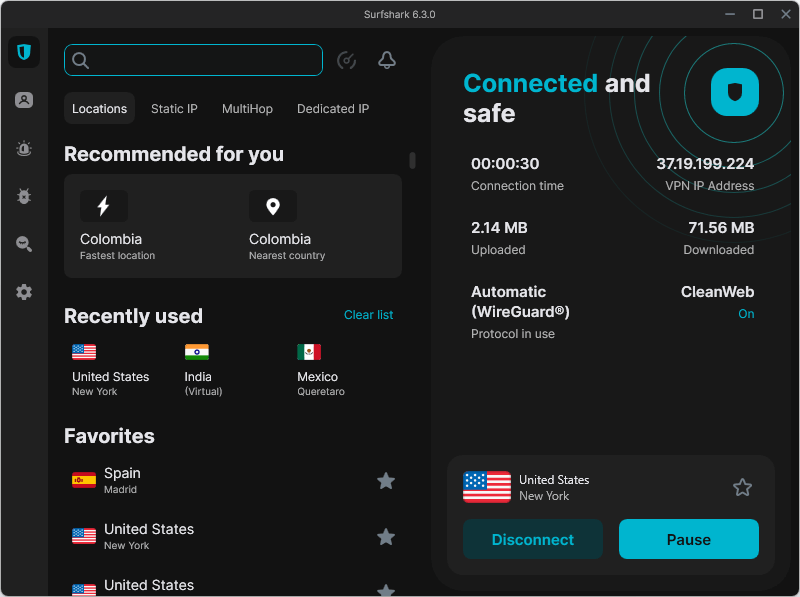
Plus, there’s one big benefit with Surfshark that you don’t find with most other VPNs: Surfshark gives you an unlimited number of simultaneous connections under one subscription.
Surfshark maintains strong privacy protection policies and is a no-logs VPN based in The Netherlands. The Surfshark apps incorporate good leak protection features (kill switch) to ensure data remains encrypted and secure without any leaks. There is also a CleanWeb feature to block ads, trackers, and malware domains through the VPN. This is similar to the VPN ad blockers we tested with NordVPN and CyberGhost.
In performance testing, Surfshark has achieved speeds exceeding 750 Mbps, making it one of the fastest VPNs available.

Surfshark offers great security features and user-friendly VPN apps
Surfshark utilizes strong encryption with AES 256 and ChaCha20 ciphers. It supports both the OpenVPN protocols, known for their security and reliability, and IKEv2 VPN protocols, as well as WireGuard. Similar to our other top VPNs, Surfshark runs all servers in RAM-disk mode for added security. It offers 14 double-VPN server configurations, allowing you to encrypt traffic over two servers at the same time.
Similar to NordVPN, Surfshark offers a privacy-focused version of the WireGuard VPN protocol, which you can select right in the app settings. In our tests for the Surfshark review, the WireGuard VPN protocol outperformed most other services in terms of speed, as you can see in the Surfshark vs CyberGhost report.
See all Surfshark VPN features here >
The new and updated Surfshark apps are user-friendly and also loaded with features, without be overwhelming. You can easily select VPN server locations, adjust tunneling protocol options, connection settings, split tunneling, and more.
If you want to stream media and unblock websites, Surfshark is a great choice with 4,500+ servers in 100 countries around the world. It currently supports 16+ global Netflix regions, as well as most other streaming services, including BBC iPlayer, Hulu, and Disney Plus. It is a great VPN for Android and iOS with dedicated mobile apps.
| Surfshark plans | Starter | One | One+ |
|---|---|---|---|
| 1-month | $15.45/month | $17.95/month | $20.85/month |
| 1-year | $2.79/month | $3.29/month | $6.29/month |
| 2-year | $1.69/month | $1.99/month | $4.19/month |
Deal: Get 87% OFF Surfshark 2-year plans >
Refunds and support: All Surfshark subscription plans come with a full 30 day refund guarantee. They have 24/7 live chat support and many user setup guides.
See our Surfshark review for more test results and analysis.
3. Proton VPN — Simple, private VPN in Switzerland
| Website | ProtonVPN.com |
| Based in | Switzerland |
| Logs | No logs (audited) |
| Price | $2.49/mo. |
| Support | Email + Chat |
| Refund | 30 days |
| Deal | 75% Off Coupon |
You’ll love Proton VPN if privacy is your top priority. This service stands out for its strong focus on privacy and security. Built by the same Swiss team behind Proton Mail, it delivers rock-solid security with a strict no-logs policy that’s been independently audited, OpenVPN and WireGuard protocols with AES-256 and ChaCha20 encryption respectively. Unlike NordVPN and Surfshark, Proton VPN uses encrypted servers rather than RAM-only servers with disk drives. While we prefer the RAM-only configuration, Proton VPNs encrypted drives can protect your data from most any attacks.

Here’s what you get in everyday use:
- NetShield ad and tracker blocker — think of it as Proton’s version of NordVPN’s Threat Protection.
- Secure Core (double-VPN) — routes your traffic through privacy-hardened servers in Switzerland, Iceland, or Sweden before hitting the exit node.
- Great for streaming — reliably unblocks US Netflix, Amazon Prime Video, Disney+, and Hulu in our latest tests.
- Torrent-friendly — P2P is allowed on most servers, though download speeds don’t quite match NordVPN or Surfshark.
- Stealth protocol — Allows Proton VPN to function on most restricted or censored networks.
Proton VPN has an enormous network, with over 16,900 servers in 127 countries, making it a strong contender among the best services.
| Proton VPN plans | Proton VPN Plus | Proton Unlimited |
|---|---|---|
| 1-month | $9.99/month | $12.99/month |
| 1-year | $3.99/month | $9.99/month |
| 2-year | $2.49/month | $7.99/month |
Deal: Get 75% OFF Proton VPN 2-year plans >
Refunds and support: Proton VPN has a pro-rated 30-day refund policy and provides live chat support during Swiss business hours.
See the Proton VPN review for more test results and info.
4. ExpressVPN — Secure and reliable VPN service
| Website | ExpressVPN.com |
| Based in | British Virgin Islands |
| Logs | No logs (audited) |
| Price | $3.49/mo. |
| Support | 24/7 live chat |
| Refund | 30 days |
| Deal | 73% Off Coupon |

ExpressVPN remains a premium VPN service in 2026, delivering solid performance through its easy-to-use apps for Windows, macOS, Linux, Android, iOS, and routers while supporting up to 10 simultaneous connections. All apps include reliable leak protection and secure protocols, including the audited, open-source Lightway protocol (optimized for speed and privacy) and an enhanced WireGuard implementation with post-quantum encryption.
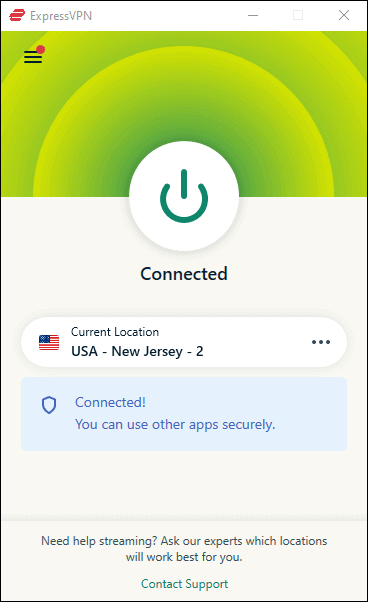
Multiple independent no-logs audits confirm that ExpressVPN never records your browsing activity, keeping your data completely private and shielded from your ISP. ExpressVPN is one of the best VPNs for streaming because it reliably unblocks Netflix (including libraries in the US, UK, Canada, Australia, France, Italy, Japan, Germany, and many more), HBO Max, Disney+, Hulu, Amazon Prime Video, BBC iPlayer, ESPN, Sling TV, and virtually every other platform. A dedicated Fire TV Stick app and the MediaStreamer smart DNS service make it easy to use on smart TVs, Apple TV, and gaming consoles.
The network consists of over 3,000 servers across 105 countries (some virtual for hard-to-reach regions), delivering consistently fast connections worldwide thanks to Lightway. While ExpressVPN doesn’t use specialty servers, speeds remain excellent for any task.
Additional touches like port forwarding (on routers), plus Chrome and Firefox browser extensions, make ExpressVPN one of the most polished and user-friendly options available.
| ExpressVPN plans | Basic | Advanced | Pro |
|---|---|---|---|
| 1-month | $12.99/month | $12.09/month | $19.99/month |
| 1-year | $4.99/month | $5.99/month | $8.99/month |
| 2-year | $3.49/month | $4.49/month | $7.49/month |
Deal: Get 73% OFF ExpressVPN 2-year plans >
Refunds and support: All ExpressVPN subscriptions come with a 30-day money-back guarantee. They offer 24/7 live chat support as well as a large knowledge base with tutorials and videos.
Check out our ExpressVPN review for more info and test results.
5. IPVanish — Fast, secure, audited VPN, great for streaming and torrenting
| Website | IPVanish.com |
| Based in | USA |
| Logs | No logs (audited) |
| Price | $2.19/mo. |
| Support | Email and Chat |
| Refund | 30 days |
| Deal | 83% Off Coupon |
IPVanish is a solid mid-tier VPN that’s getting better fast — especially if you love streaming and need Fire TV/Apple TV support. Here’s what you’ll get in 2026:
- Streaming powerhouse — reliably unblocks US/UK Netflix, BBC iPlayer, Hulu, Disney+, Amazon Prime, DAZN, and more in our latest tests.
- Strong security — AES-256 and ChaCha20 encryption, WireGuard + OpenVPN, audited no-logs policy, always-on kill switch, full leak protection, and Scramble obfuscation for restricted networks.
- Unlimited simultaneous connections — protect every device you own with one subscription.
- Fast and reliable VPN speed — IPVanish consistently delivers high connection speed, with minimal drops in download and upload speeds, making it ideal for streaming, privacy, and overall user experience.
- Rare native apps — dedicated Apple TV app + Firestick app with a working kill switch (most VPNs don’t offer this).
- Clean, beginner-friendly apps for Windows, macOS, iOS, Android, and routers.
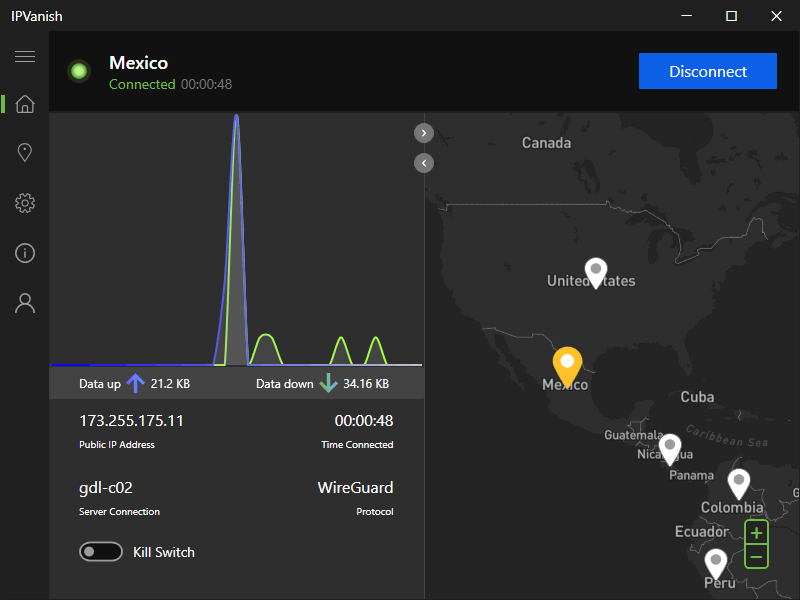
IPVanish is also one of the few VPNs to offer a VPN app for Apple TV. Additionally, it has a VPN app for Firestick with a fully-functioning kill switch, which is rare.
| IPVanish plans | IPVanish Essential | IPVanish Advanced |
|---|---|---|
| 1-month | $12.99/month | $14.99/month |
| 1-year | $3.33/month | $4.49/month |
| 2-year | $2.19/month | $3.29/month |
Deal: Get 83% OFF IPVanish 2-year plans >
Lastly, IPVanish offers excellent customer support, including a 24/7 live chat feature and a 30 day money-back guarantee on yearly and 2-year plans.
See our IPVanish review for more info and the latest test results.
6. CyberGhost — User-friendly and versatile
| Website | CyberGhostVPN.com |
| Location | Romania |
| Price | $2.29/mo. |
| Logs | No logs (audited) |
| Support | 24/7 chat; Email |
| Refund | 45 days |
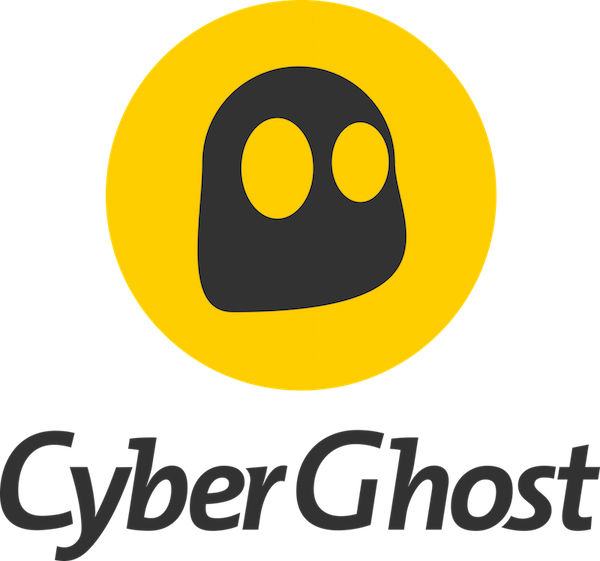
CyberGhost is the beginner-friendly VPN you’ll actually enjoy using. It has no complicated settings, just one-click protection.
With thousands of servers in 100 countries, it delivers reliable speeds and includes dedicated streaming servers that unblock Netflix, Disney+, Hulu, BBC iPlayer, and more without guesswork.
What makes CyberGhost stand out:
- Super-simple apps — perfect if you’re new to VPNs or just want something that “works.”
- Strong security — AES-256 encryption, a rock-solid kill switch, a strict no-logs policy (independently audited), and built-in malware protection to help block malicious sites and trackers.
- Can be bundled with antivirus software for comprehensive protection against malware, viruses, and other online threats.
- Dedicated IP option — great for remote work, banking, or avoiding CAPTCHA hell (add-on cost).
- Unlimited device connections — protect every phone, tablet, console, and smart TV in your house.
- 24/7 live chat support that actually responds fast.
- Longest money-back guarantee in the industry: 45 days (14 days on the 1-month plan).
Refunds and support: 45 days on longer plans and 15 days on the monthly plan.
Learn more in our CyberGhost VPN review.
7. Mullvad VPN — Swedish VPN focused on privacy
| VPN | Mullvad |
| Based in | Sweden |
| Logs | No logs |
| Price | $5.44/mo. |
| Support | |
| Refund | 30 days |
| Website | Mullvad.net |

Emphasizing privacy and security, Mullvad VPN offers a user-friendly option to VPN seekers. With a straightforward account setup process and anonymous payment options with cryptocurrency, Mullvad is a solid choice for privacy-minded people.
Mullvad offers many of the same privacy features we see with other top VPNs on this list. This includes content filtering to block ads, trackers, malware, and adult websites, as well as multi-hop VPN support.
While Mullvad does not have the largest network, the servers it does have are reliable and secure. But we did identify a few drawbacks when testing out the network for the Mullvad review:
- Captcha authentication challenges are a recurring struggle when using Mullvad, affecting the everyday usability of the service
- Streaming services, such as Netflix and BBC iPlayer were consistently blocked in our tests
While Mullvad certainly excels in the privacy and security categories, streaming is not one of its strongest areas. Additionally, with a smaller network of servers, it may not be the best VPN for gaming if you are looking to minimize latency and have the fastest speeds.
Refunds and support: 30 day refund window with all subscriptions along with email support (no live chat).
See the Mullvad VPN review for more info.
8. Trust.Zone — Basic VPN with above average performance
| VPN | Trust.Zone |
| Based in | Seychelles |
| Logs | No logs |
| Price | $1.77/mo. |
| Support | |
| Refund | 10 days |
| Website | Trust.Zone |
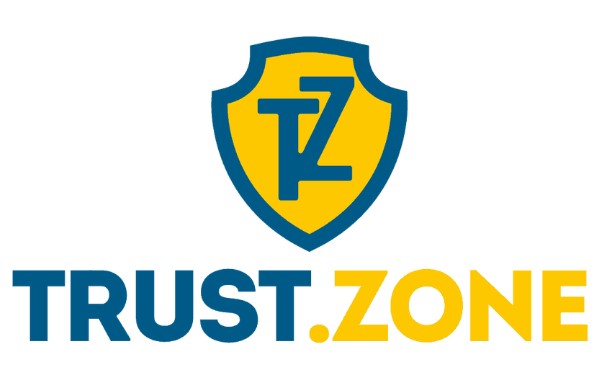
Trust.Zone is a smaller, privacy-focused VPN based in Seychelles, which is another good offshore privacy jurisdiction. It offers basic, user-friendly VPN apps for Windows, iOS, and Android with built-in leak protection. Additionally, Trust.Zone supports other operating systems through third-party apps, such as Tunnelblick and OpenVPN Connect. Trust.Zone VPN works across a wide range of devices and platforms, making it easy to protect your privacy whether you use a desktop, laptop, or mobile device.
Trust.Zone boasts a good selection of servers around the world, despite being a smaller VPN. It supports the WireGuard protocol, but it requires custom setup and configuration. You will need to download config files from TrustZone and then import these into the WireGuard client.
Speed tests for the Trust.Zone review were good, with most servers around my full baseline speed. Trust.Zone supports streaming US Netflix and Hulu, and also does not restrict torrenting on their network. It is one of the best VPNs with a free trial, allowing you to test the service without entering any payment info.
If you want to give Trust.Zone a test run, you can do so completely free for 3 GB of bandwidth or 3 days, whichever comes first.
Refunds and support: TrustZone has a 10 day refund window as long as you don't exceed 1 GB of data. Support is available through email (no live chat).
Get a 3 Day Free Trial of Trust.Zone VPN >>
See also the Trust.Zone review for more details.
How to choose the best VPN
Given the plethora of services on the market, selecting the one that best suits your needs can be challenging. Several factors should be considered when selecting a VPN, including:
- Security: Look for AES-256 or ChaCha20, the industry leading encryption standards used by all the top VPNs, secure protocols (WireGuard/Lightway/OpenVPN), a reliable kill switch, DNS/IPv6 leak protection, and extras like ad/tracker blocking.
- Privacy: Demand a strict, independently audited no-logs policy and give extra credit for a headquarters in a privacy-friendly jurisdiction.
- Speed: All the VPNs we recommend here are fast enough for 4K streaming and gaming.
- Network: While all the VPNs covered here have servers in key countries around the world, a general rule of thumb is more servers in more locations is better.
- Device support & simultaneous connections: Native apps for Windows, macOS, iOS, Android, Linux, routers, plus the ability to support at least 5 devices actively using the VPN at once.
- Streaming performance: If you stream video, your VPN must reliably unblock Netflix, Disney+, Hulu, BBC iPlayer, Amazon Prime, etc.
- Torrenting: If you are into torrenting, a VPN should have P2P-optimized servers with good speeds and no bandwidth limits.
- Ease of use & support: Beginner-friendly apps and 24/7 live chat that actually solves problems.
- Value & guarantee: Low long-term price + at least a 30-day money-back guarantee. Many VPN companies offer discounts for long-term subscriptions, making them more affordable than monthly plans.
When evaluating which VPN to choose, consider how the VPN services work across your devices, the reputation and privacy policies of the VPN provider, and the extra features they offer beyond basic encryption.
That’s why all-rounders like NordVPN, Surfshark, and ExpressVPN keep topping our lists – they nail every single one of these points for most people.
How to get the best VPN performance and speeds
Maximizing the benefits of your VPN extends beyond merely selecting a trustworthy provider. There are several tips and tricks you can use to optimize your VPN performance.
Here are some tips for getting the best VPN speeds and reliability:
- Use the closest server possible to your physical location to reduce latency and improve both internet speed and connection speed.
- Choose the least crowded server or the “recommended” server if your VPN app identifies one, as this can help maximize VPN speed.
- Experiment with different VPN protocols. OpenVPN UDP offers a good mix of security and speed. WireGuard is the fastest VPN protocol we’ve tested and can help minimize speed loss.
- Use a wired (ethernet) connection rather than WiFi. Wired connections are generally faster and more consistent, helping to maintain optimal connection speed.
- Disable unnecessary features and settings in your VPN client to reduce resource usage and improve VPN speed.
- Update your VPN client and operating system to the latest versions to ensure the best possible performance.
- Upgrade your internet connection to a higher speed to help offset any speed loss from using a VPN.
Conclusion on the best VPNs
To briefly recap this best VPN roundup guide, here are the best VPNs that have passed all of our tests and earned a recommendation.
- NordVPN — Best all-around VPN with secure apps for all major devices and very fast speeds (over 900 Mbps). Great for streaming plus extra security features (with a 77% off coupon).
- Surfshark — Best VPN for many devices (unlimited connections). Visit site >
- Proton VPN — User-friendly and private VPN in Switzerland. Visit site >
- ExpressVPN — Secure and reliable VPN service. Visit site >
- IPVanish — Fast, secure, and audited VPN with excellent support for streaming. Visit site >
- CyberGhost — Secure, fast, private VPN in Romania. Visit site >
- Mullvad — Privacy-focused VPN in Sweden. Visit site >
- Trust.Zone — Basic, affordable VPN service. Visit site >
In an era of shrinking digital privacy and ever-tougher streaming restrictions, a good VPN is essential. It can restore your privacy, bypass geo-blocks, and let you watch the content you pay for, no matter where you are.
A VPN also adds vital security against rising threats like data breaches and malware. Top providers go further: NordVPN, for example, bundles powerful extras like Threat Protection, which blocks malware, ads, and trackers in one clean package.
That combination of speed, reliability, streaming power, and all-round protection is why NordVPN stays our #1 recommendation — especially with the current 77% off deal.
On a tighter budget? Check our regularly updated guide to the best working VPN coupons.

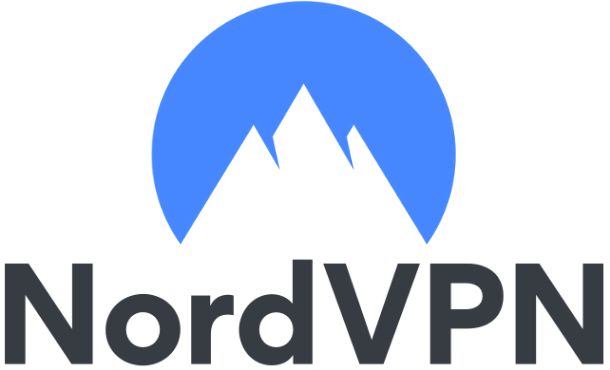

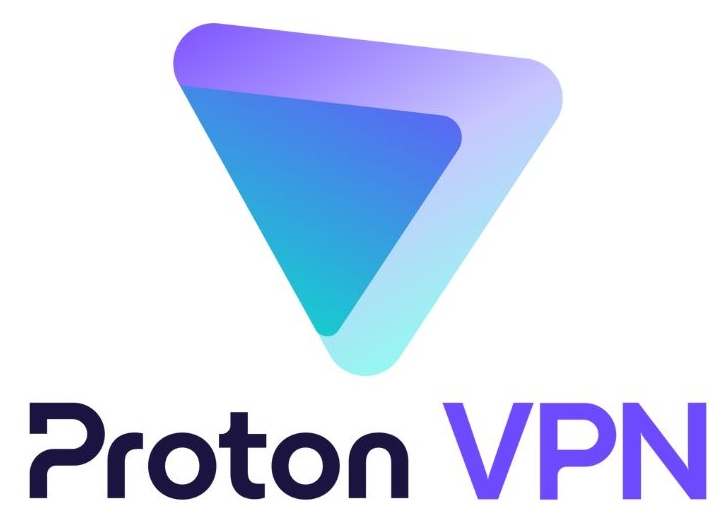

Trsut Zone It’s anything but a VPN. Reading the review on this site a couple of years ago, I was convinced to purchase a three-year subscription. I’ve only used it three or four times, just to see if they’d resolved the geoblocking issues after a few months. Every free service accessible only through a VPN doesn’t work.
I’ve contacted customer service, and they’ve never been able to resolve a single issue. How it still appears on the list of best VPNs is a mystery.
REQUEST: TUTORIAL ON WORKAROUND FOR ACCESSING WEBSITES THAT DETECT (BLOCK VPN IP ADDRESS RANGES)
This is becoming a common and frustrating issue.
It’s not as simple as changing locations. Many sites especially those with big bucks are blocking access if using a VPN.
Sure, you may luck out and find a country or server that works, but that’s temporary. Most of these sites don’t want you to access their site outside their region.
I’m finding a LOT of sites like a “coupon clipping” Redflagdeals in Canada and other sites especially government and banking sites are blocking access. Obfuscation and other similar protocols don’t work.
As such, a tutorial or explanation what options besides a static VPN IP (which can be blocked too) isn’t a solution. There needs to be active discussion on this.
guys check, you decide what vpn use….
https://protonvpn.com/what-is-a-vpn
The free version of protonvpn generates some suspicion. According to them, they are audited by their own audit. It would be good if other VPNs audit them and give their opinion on what they are uploading on github of their updates.
Youtube: Video not available in your country: This never was an issue in the past with a premium paid VPN I have used. I tried various protocols and none worked leaving baffled.
Has something changed recently?
Even though Ivacy is mentioned in this site, I cannot find any reviews of it. What’s up with that?
I was trying to find and post a warning about VPN Secure and how the new company (under new management) sent out a nasty email. Part of the acquisition including costs of the lifetime accounts. But the sleazy nature of this company is spinning this in another direction. Avoid VPN Secure!
Email says the following:
“This isn’t your average “marketing email.”
This is us owning the chaos, addressing the backlash, and speaking directly to the heart of what’s happened — and what we’re doing about it.
⚠️ What Just HappenedIf you’re reading this and still wondering, “Why did my VPN stop working?” — here’s the short version:
In 2023, we acquired VPN Secure through an asset-only deal.
We got the tech, the brand, and the infrastructure/technology — but none of the company, contracts, payments, or obligations from the previous owners.
The Lifetime Deals (LTDs) sold by the old team between 2015 and 2017 were not disclosed to us. We only found out months later.
We kept those accounts running for 2 extra years, entirely at our own cost — even though we never received a single cent from those subscriptions. On April 28, 2025, all LTD accounts were officially deactivated.”
This should be a story on its own. It’s all over media now.
Anyway, not being aware of a liability is a failure on the part of your auditor doing due diligence prior to the acquisition. Failure to disclose the liability is a failure on the part of the seller. Neither is the fault nor problem of the liability itself.
They didn’t want to deal with the costs of suing the seller they purchased from, so their plan is to instead deal with a class action lawsuit and the loss of reputation their actions have caused?
I’m no longer a fan of NordVPN. They were the buzz many years ago. I see them advertise on TV now.
However, over the past few years, for me their speeds have fluctuated drastically, and now, just as my plan is about to expire, I’ve noticed a sudden spike in speed. It feels like a last-minute attempt to get me to renew.
One of my biggest issues is that NordVPN runs a system file in the background 24/7 on my PC, even though I don’t need constant protection. It autostarts by default, and the only way to stop it is by going into Windows settings (services.msc). It’s an unnecessary hassle that shouldn’t be required for a program like this.
Another problem is that the Mesh feature and SmartDNS never worked for me. I reached out to support, but all I got were redundant, template responses that didn’t address the specific issues I described. It felt like they were just ticking boxes and not actually trying to resolve the problem. Instead of offering real solutions, they sent generic fixes that missed the nuances of what was going wrong, making the whole experience frustrating.
And let’s talk about their marketing. Ads claiming “blazing speeds” aren’t just overselling—it’s a cheap, hyped-up phrase that screams exaggerated marketing tactics. It’s the kind of language you expect from products promising “jaw-dropping results”—and, frankly, it doesn’t inspire confidence.
Another thing that irks me is that I can’t see how many devices are logged in at once. If NordVPN allowed unlimited logins, this wouldn’t be an issue, but since they don’t, it’s something I need to keep track of.
It’s been an interesting couple of years with NordVPN, but overall, they don’t cut it for me as an advanced user. Many websites now block NordVPN’s IP ranges, which isn’t as common with other popular VPNs. It seems like Nord has become a target, and I’m done dealing with it. I won’t be renewing.
What about best VPNs for IPTV? Many are now blocking access to IPTV if you’re using a VPN.
As far as Mullvad is concerned, I haven’t had a problem streaming while using it. One other VPN provider I hope you all will review if you haven’t already is IVPN. They’re also very good.
https://ivpn.net/
I’ve had problems with them – for example; steaming a live rugby game in my country (Ireland). I then switched back to Nord VPN and the problem was no more.
I like that they’re there, but their server network is too small and as such is easily blocked by content providers.
Time to let go perfect privacy now. They are behid their glory days. They have familes and needs vacations.
Why is this list buried? There is no section for VPN reviews in the header up top. How are visitors supposed to end up here unless they click on a hyperlink in one of the other reviews on this site or use the search feature. Even then with the latter, a lot of hits come up. Please fix. Thanks.
Yep we’re going to update the header soon, as well as the homepage. Thanks for the feedback.
Can anyone suggest a light-weight VPN for Firestick? There are many bogus claims (reviews) by popular sites that suggest certain VPNs but they fail to perform any better than the others.
My take is the Firestick CPU isn’t powerful enough to run any VPN above 30 Mbps.. Without a VPN I’m able to get around 350+ Mbps. I tested with older Android TV boxes connected to the same 5G WiFi SSID and the issue is definitely Firestick related.
Firstly, thank you for all this information. Here’s my contribution: OVPN has been acquired by Pango as of mid 2023 as part of Intersections LLC. So the jurisdiction is not Sweden based anymore, but the U.S. My advice is to scrutinize the current terms and privacy policy, do some background check and do an updated review on OVPN.
Thank you for pointing this out Updater. We will be fising this information in the next day or so.
You were on top of it! Good to see that my contribution helped! You even removed it from the list I see. I wonder what you are going to do with the ovpn review. I’m interested in your opinion now ovpn has changed. I really wonder how you would describe it now. Are you going to do an updated review?
Yep we’ll be updating the review as well.
There’s No reply button under your last reply, so I’ll reply here.
Looking forward to it. I think this will be an interesting case for people to read about how a change in jurisdiction and ownership can change a vpn service.
I think in terms of overall value and performance, NordVPN is the top VPN on the market right now. That being said, I do like Mullvad for privacy features alone, but I also need a streaming VPN. So I’m leaning more towards NordVPN or Proton at the moment.
Why isn’t Windscribe in the top 10? Their model is very juvenile, but their network just works—unlike the heavily promoted NordVPN on this site. They have no identifable logs. They are failry transparent and their website has a graph of DMCA and LE requests. I can circumvent censorship with Windscribe, and it even works in China. For the most part, I can bypass geo-restrictions on my Amazon Fire Stick, which isn’t the case with NordVPN.
I imagine some lesser-known VPNs might also perform well, but Windscribe’s lack of commitment and straightforward plan make it a strong option. However, it seems most people don’t rigorously test their VPNs, as seen in the comments. For example, one of Amazon’s apps, called Freevee, detects my location despite using a VPN. Perhaps we need more analysis and investigations into what tools consumers can use to bypass these restrictions. FWIW, SmartDNS doesn’t work in these scenarios either.
I’ve heard horrible news that that an organization called the Audiovisual Anti-Piracy Alliance (AAPA) is NOW lobbying to force VPNs and web browsers to block copyright infringing sites (it is often called “piracy sites” but calling copyright infringement as piracy is actualy pejorative) in the EU by making injunctive relief available against VPNs. This makes EU-based VPNs very vulnerable to censorship. I use Surfshark which is based in the Netherlands but is probably not affected because the terms of service lists the jurisdiction as in the British Virgin Islands. Unfortunately for Mullvad and OVPN it won’t be the same.
Even more unfortunately, Italy has already made draconian threats against VPNs forcing them to block infringing websites. Italy has received a lot of infamy for its “Piracy Shield” which has extremely burdensome requirements and makes it very easy for rightsholdersnto block content. One VPN, AirVPN, was forced to leave Italy because of that.
How come your Proton VPN link doesn’t work?
I just checked and it’s working on our end. Perhaps you have an ad blocker enabled that blocks the link?
Yes, I just checked and ublock origin is blocking the link. However, other websites that have a Proton VPN link, ublock origin is not blocking those links. It is only blocking your link. Even though I prefer to support you, I am not going to turn off ublock origin just to buy through your link. I will go to another website where ubo is not blocking the link and that has the same exact discount.
Thanks for the information Kevin. I’m going to work with Proton VPN to figure this out. You mentioned that this isn’t a problem with other websites. I’m curious what websites you found that have the same discount link but are not blocked by UBO. If you want to email me any more info, it’s contact@restoreprivacy.com
Again, thanks for the info and your support, we’re trying to fix this now.
All this love for the nice and cheap hideme vpn… with its “benevolent jurisdiction” and “ITS” servers… Well, “legally” in Malaysia, but geographically and technically residing in Germany, and “ITS” servers rented from the British law company M247 👉5👁️👈.
Personally, it sounds to me they are likely hideme.vpn shills just trying to get the name of their VPN out as much possible — free advertising.
Maybe you’re a shill trying to dissuade people from using secure email services.
Hey Alex,
Could you provide some insight into why it seems like new VPN providers are emerging almost as frequently as eSIM providers?
There seem to be a lot of relatively unknown names popping up. Are these just tech-savvy Millennials or Gen Z who made a fortune in crypto and decided to launch a VPN from their basement?
Also, I noticed that NordVPN is now jumping on the eSIM trend as well. What do you make of that?
Hi Damon, over the years there are always new VPNs that come and go, so nothing new there. I haven’t looked at the eSIM situation much to be honest.
As per 2 other people requesting on this page, please review hide.me.
Until Alex or someone else does a full review on here,
you could have a look at this https://hide.me/en/why-hideme
:
You might find hide me good for you,
other people on here might find express, nord,
surfshark and other vpn providers more interesting
because of their : features, locations of their servers, prices, etc.
:
At the end of the day,
go with the provider that is
best for your budget and needs : )
Trustpilot can’t be trusted. If any VPN needs an evaluation it’s Fastest VPN: [https://fastestvpn.com]
The Standard plan pricing looks good for 2 years (compared to my PIA plan). Has anyone had NordVPN for long enough so that they automatically renewed your plan? What did the standard plan renew at? Is it at the same initial $2.99/month rate?
Regarding your question . . . you can find information by clicking on the following links.
:
https://my.nordaccount.com/legal/pricing/
https://my.nordaccount.com/legal/terms-of-service/subscription/
https://support.nordvpn.com/hc/en-us/sections/19326470505105-Payments
:
As for big discounts ( sales ) , most providers offer them during special times during the year.
Easter, Halloween, Black Friday, Christmas and New Year’s Day.
:
Also, some providers might celebrate a special anniversary and have promotional sales.
Example, VPNAlex was created on August 10. Meaning, on that date or during that weekend, the company celebrates by offering customers discounts of 20 – 30 % or maybe more on all of their subscription plans.
Hi Sven
The more I learn, it’s scary lol. I have a question. I’m not tech savvy at all and I’m just getting started with taking my privacy back. I have 2 phones mine and fiance’s. I haven’t even turned them on yet not until I have my ducks in a row. A S21+ and a A54 i chose them because they were getting the android 14 update, I had just bought a S20+ didnt find out till after the fact that its not getting any more undates it stays at android 13 its so funny cuz my old phone A53 got the update, so I’m going to buy the diy to fix screen. The more you know. I’m not signing into a google account. Still trying to figure a way around the play store. I’m getting a VPN. Do you know what I need to do to get a vpn with the duck browser. I wanted to try one out. Even though duckduckgo is not a vpn apparently android reads it as a VPN. Also I was told Android only let’s you have one VPN and I like that app tracking feature. Everything else would work just not the app tracking. They have the VPN services who advertise they work with duck but when I contact they don’t actually answer the question. I don’t want to purchase subscription to find out after that I need a new browser. I like duckduck browser and duck search. So far for my privacy that’s the only thing I have locked down but I am choosing everything from your recommendations. I do have a couple other questions if you don’t mind. step by step guide to root phone. Is there another way to get rid of google. the 2 new phones will be fairly easy to set up. Do they have a step by step guide to degoogle.
Thank You
Taking back control
Cell Phones – deGoogled Android or with a Linux OS
:
E.foundation
Calyxos.org
Copperhead.co
Grapheneos.org
iode.tech
:
Lineageos.org
Murena.com
Necunos.com
Pine64.org
Puri.sm
Volla.online
:
http://www.fairphone.com
http://www.fxtec.com
xfonetechnologies.com
Alternatives – Google Play Store
:
https://www.amazon.com/ ( app store )
https://www.appbrain.com/
https://www.apkmirror.com/
https://en.aptoide.com/
:
https://auroraoss.com/
https://f-droid.org/en/
https://galaxystore.samsung.com/apps
https://en.softonic.com/
https://en.uptodown.com/m/
https://en.uptodown.com/ . Sorry for the mistake.
Alex, please clean this up. Unless you’re taking a different approach we don’t need half a dozen or more links inside the comments. It’s really cheapening the experience and the comments look like they’re from bots.
Web Browsers – Android Devices – Privacy Focused
–
https://brave.com/
https://www.mozilla.org/en-US/
https://www.torproject.org/download/
–
Sorry to Alex for repeating
a few of your recommendations.
I just had to share a few links or else
this message would have been boring. lol
–
I have a Samsung S21.
For Google and other apps related to it,
I simply disable them or uninstall them.
If you do not want any trace of Google ever
being on your phone, it is hard to do.
–
With that said,
you could look into getting
a phone that out of the box is already Degoogled.
You could also look at phones that come with a Linux OS installed.
–
Nowadays, seems like the Samsung phones come
loaded with more Google related items like they are
being sponsored by them. lol
–
I probably spent 1 hour removing
or disabling Google and Samsung apps from my S21.
Too bad that you cannot simply buy a phone with
only the essentials for most users.
Then, if you want to add extra apps,
you have the choice of adding the ones
that you want.
–
If you have more questions,
do not be shy to ask. We are a family on here 🙂
No. You’re perspective needs recalibration. We’re not family here.
Perfect Privacy. I continue to use it for many years. I once wrote a bad review here about their support service, but considering that the support service was not required at all for at least 5 years, you can forgive it. The only time I contacted the support service was regarding payment; I rather wanted participation and conversations than needed real help. In general, there are disadvantages of various kinds, and especially in the last year it seems to be working less stably, that’s the feeling. but the desire or even thoughts to change something have never arisen yet.
Sven Sir Hide.me, Torguard VPN and iVPN are also good VPNs. They might make for 13th, 14th and 15th positions.
Hi,
could you check hide.me?
I´m very satisfied with them so far.
Sven Sir I believe Proton VPN is much improved and is top tier. It has improved service and support and reduced price.
Please can you tell me what are those areas where Proton VPN lacks due to which not only it is not as good as Surfshark and Nord VPN but also not as good as Express VPN?
Performance was always a big drawback with Proton in our tests, but we’ll be testing it again soon for an update to these rankings.
We’re testing it right now and it will be live within the next week.
Sven Sir what are your views on Mullvad VPN? Also please test Adguard VPN.
We haven’t reviewed Adguard VPN or Mullvad but it looks like a good option.
When are you going to use the handle: Super Alex? Lol.
IPVanish. I tried them before ditching them during what they advertised as 30 day free refund period. They tried like hell to not give me back my refund. I had to be really dogged with them. Their last roll of the dice to keep their revenue was that they offered a refund, discounted pro rata based on the number of days I’d used IPVanish within the 30 day free refund period. It was like dealing with a bunch of crooks.
I was considering ipvanish what didn’t you like. I feel email, VPN and browser are the first steps in taking control of your privacy. I need to make my decision soon so any advice would be awesome.
Hello,
Where’s AdLock VPN and ClearVPN available through Setapp on Mac? Also Mullvad VPN which you talk about in your recommended browser article?
Br, Andreas
First it was Netflix now it’s Meta Threads which blocks you from using a VPN.
Let’s see which VPN works reliably for Threads users in the EU?